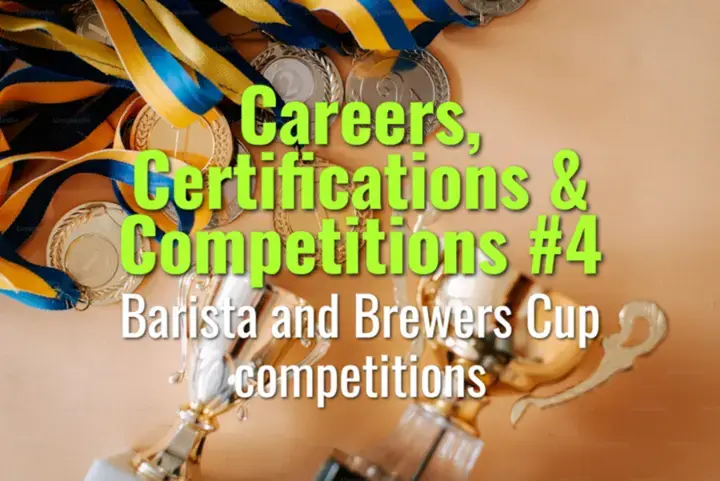Barista and Brewers Cup competitions
An overview of the World Barista Championship (WBC) and World Brewers Cup (WBrC), their competition formats, skills tested, and career relevance for coffee professionals.
- Coffee Basics Nerds
- 2 min read
Article 4 of 12 in Careers, Certifications & Competitions/

World Barista Championship (WBC)
- Format: Each competitor has 15 minutes to prepare 4 espressos, 4 milk drinks, and 4 signature beverages.
- Judging:
- Sensory judges score flavor, balance, creativity.
- Technical judges monitor workflow, cleanliness, and efficiency.
- Overall impression scored by head judge.
- Skills Tested:
- Espresso mastery (consistency, balance, tactile quality).
- Milk steaming and latte art integration.
- Signature drink design (creativity with non-alcoholic ingredients).
- Presentation and storytelling.
- Impact: Success can launch international careers, lead to consulting roles, or strengthen brand credibility.
World Brewers Cup (WBrC)
- Format: Focuses on manual brewing (pour-over, immersion, hybrid).
- Two rounds: Compulsory service and Open service.
- Compulsory: Same coffee, identical equipment for all competitors → skill parity.
- Open: Competitors choose their coffee, brew method, and presentation.
- Judging:
- Sensory evaluation of flavor clarity, balance, tactile feel.
- Brew control and repeatability.
- Customer service skills.
- Skills Tested:
- Precision in brewing variables (ratio, grind, flow rate, temperature).
- Sensory calibration and descriptive ability.
- Stage presentation and educational storytelling.
Career Benefits
- Networking: Competitions connect baristas with global industry leaders.
- Skill Advancement: Training pushes competitors beyond daily café routines.
- Brand Visibility: Strong placement brings recognition to both individual and café/roastery.
- Community Leadership: Champions often influence brewing trends and set standards.
Summary
The Barista Championship highlights espresso and milk-based beverage excellence, while the Brewers Cup showcases precision in manual brewing. Both competitions test technical mastery, sensory skill, and storytelling ability, offering participants significant opportunities for personal growth and industry recognition.